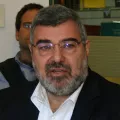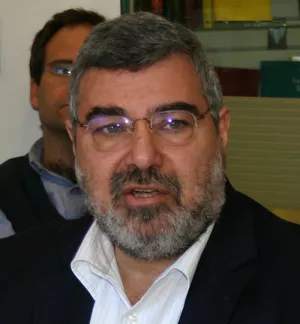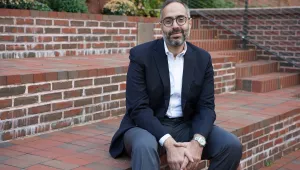DUBAI -- When the public policy institute that I work for, the Issam Fares Institute at the American University of Beirut, organized a regional seminar this week on researching "youth identity and values" in the Arab world, we decided to hold it in the United Arab Emirates (UAE), in a Gulf region where "identity issues" are widely debated because nationals tend to account for less than twenty per cent of total populations.
With our partners Unicef and the Dubai School of Government, we gathered a dozen scholars from the UAE, Lebanon, Morocco, Bahrain, Saudi Arabia and elsewhere to analyze what may well be the single most important knowledge and public policy challenge facing the Middle East and its future: how the current youth cohort sees itself in its world, and how it behaves in response.
This is because young people aged 15-29 totaled some 113 million in 2009 (UN estimates), or nearly one-third of the entire population, and about 47% of the working age population. This youth population is expected to peak in 2011 at 113.5 million, and then decline very slightly in the decades ahead. Most of these young people are getting a basic education and enjoy essential social services, like health care and clean water. What they generally lack, as our seminar reiterated, is the opportunity to manifest the full attributes of their humanity -- their ideas, creative and professional talents, entrepreneurial spirit, cultural dynamism, and sense of how their societies should be run and in which direction they should head.
Conditions vary widely in different Arab countries, but the common denominator throughout the region seems to comprise three core weaknesses: education systems that fail to promote personal development aspirations or national development drives; economies that do not tap the full potential of the energy and talent of our youth; and, political governance systems that treat youth and adults alike as unthinking and servile subjects, rather than as citizens with rights to define national policies and hold accountable those in power.
Research presented at our seminar and elsewhere confirms that young Arabs, broadly speaking, attach great importance to their families, religion and national identities, along with positive concepts such as dignity and honor (both at the personal and group levels). Yet, high percentages of youth continue to consider migrating to other lands, mainly for job opportunities, but also to overcome their limited opportunity to participate in the decision-making processes of their own state-building and national development.
New research being conducted throughout the region by local scholars suggests that many, perhaps most, young Arabs feel unnecessarily constrained by the social, political, religious, security or economic controls that confine their lives. If they cannot move elsewhere to build a more satisfying life, they often create new lives for themselves in their own home environment -- on-line, in the malls, at mosques, in volunteer charitable societies, or on the street and in the neighborhood. Their second lives allow them to express their multiple identities and manifest their full personalities and values, in domains such as politics, sexuality, ideology, religion, anti-colonialism, ethnicity, culture, resistance, consumerism, and art.
The lack of serious scholarship on Arab youth has often allowed the discussion of this group of people to be dominated by simplistic "either-or" notions (mostly emanating from the West) with little room for nuanced, complex personalities, identities or values -- i.e., our youth embrace modernity or tradition, they wear Islamic garb or blue jeans, they become entrepreneurs or terrorists, they embrace or reject Western gadgets and values. The reality is much more complex and largely positive.
Our youth (like youth everywhere) easily handle multiple identities and navigate several worlds at the same time. They mainly want to be allowed to do what is the prevalent habit of all young people -- to explore their world, experiment, grow, learn, express themselves, and develop into strong, satisfied, fulfilled young adults. The dilemma for most young Arabs is that the main forces in their lives pull and push them in two different directions: Autocratic governance, stultifying security cultures, conservative social mores, and strong religious legacies tend to severely curtail opportunities for young men and women to move smoothly into adulthood, while privatization, globalization, technological innovation and the communications revolution all provide youth with massive new outlets and enticements that they naturally want to embrace.
This stressful situation is exacerbated by depressing labor market trends. The latest analyses (according to Dubai School of Government Dean Tarik Yousef, a leading Arab economist and youth sector researcher) anticipates that the Arab world in the coming ten years must create 40 million jobs to reduce unemployment and absorb all new young workers. The likelihood of achieving this is almost zero, so prospects for young Arabs will remain tight. How this cohort of over 110 million young Arabs deals with this predicament will be the main driver of the overall condition of our region in the coming half century.
Khouri, Rami. “Young Arab World Arising.” Agence Global, February 10, 2010




